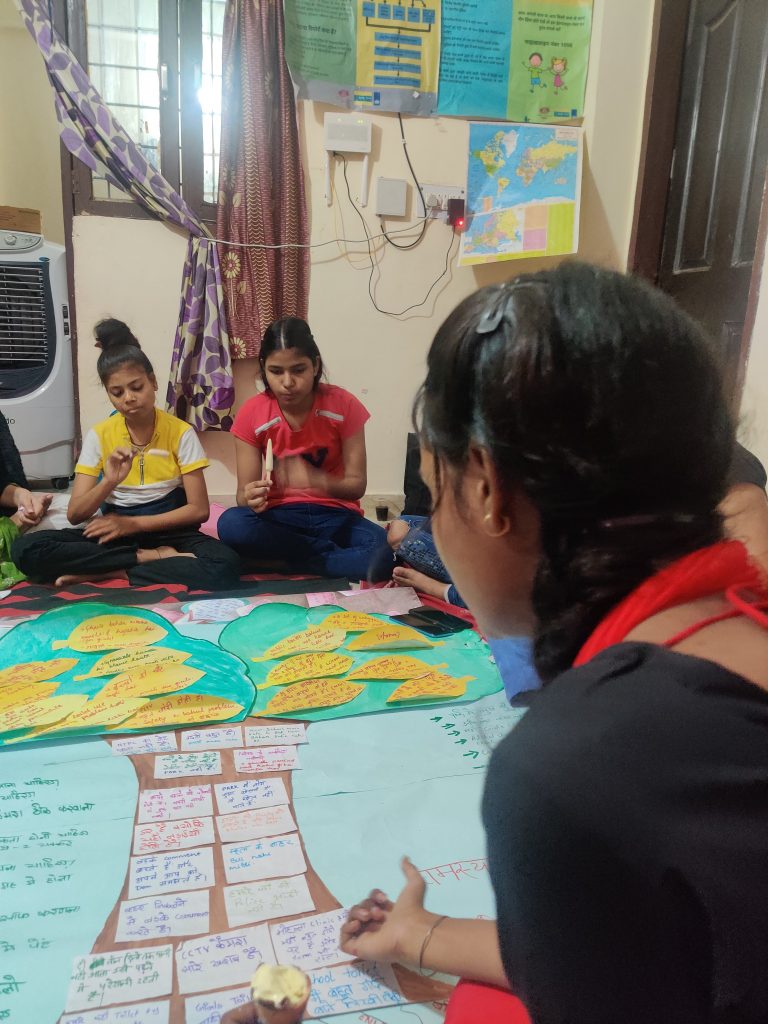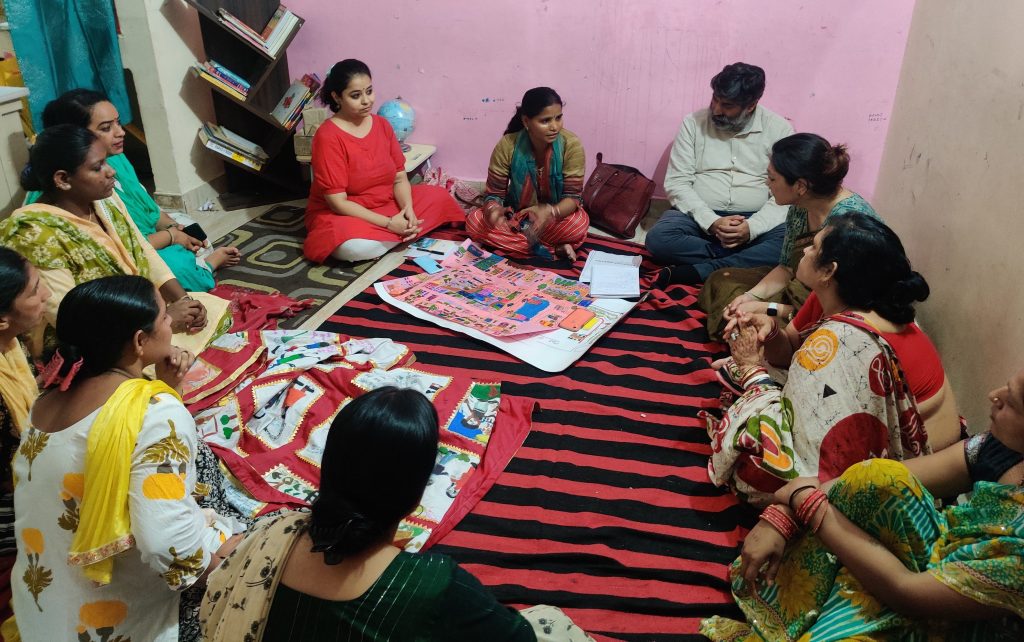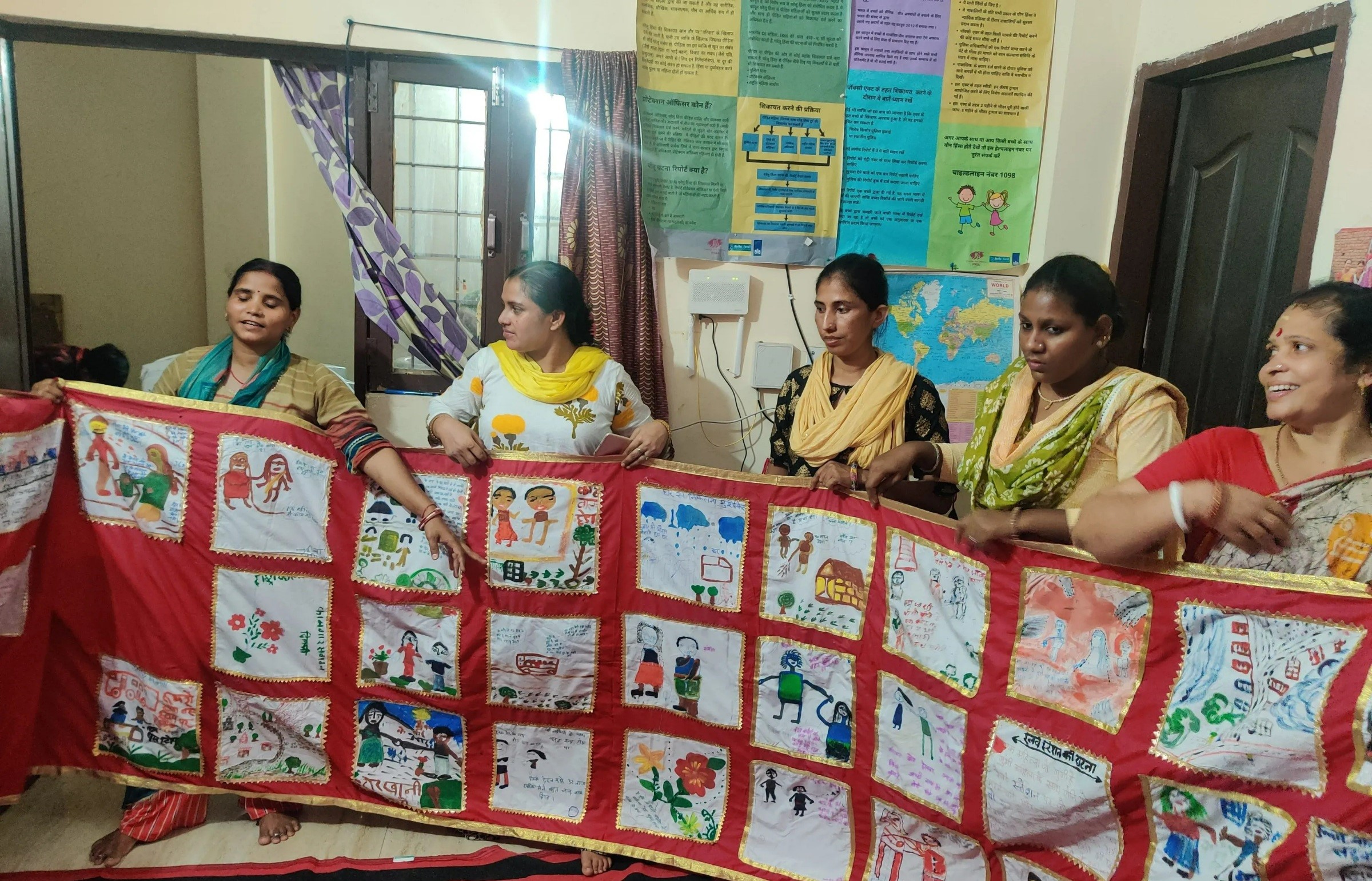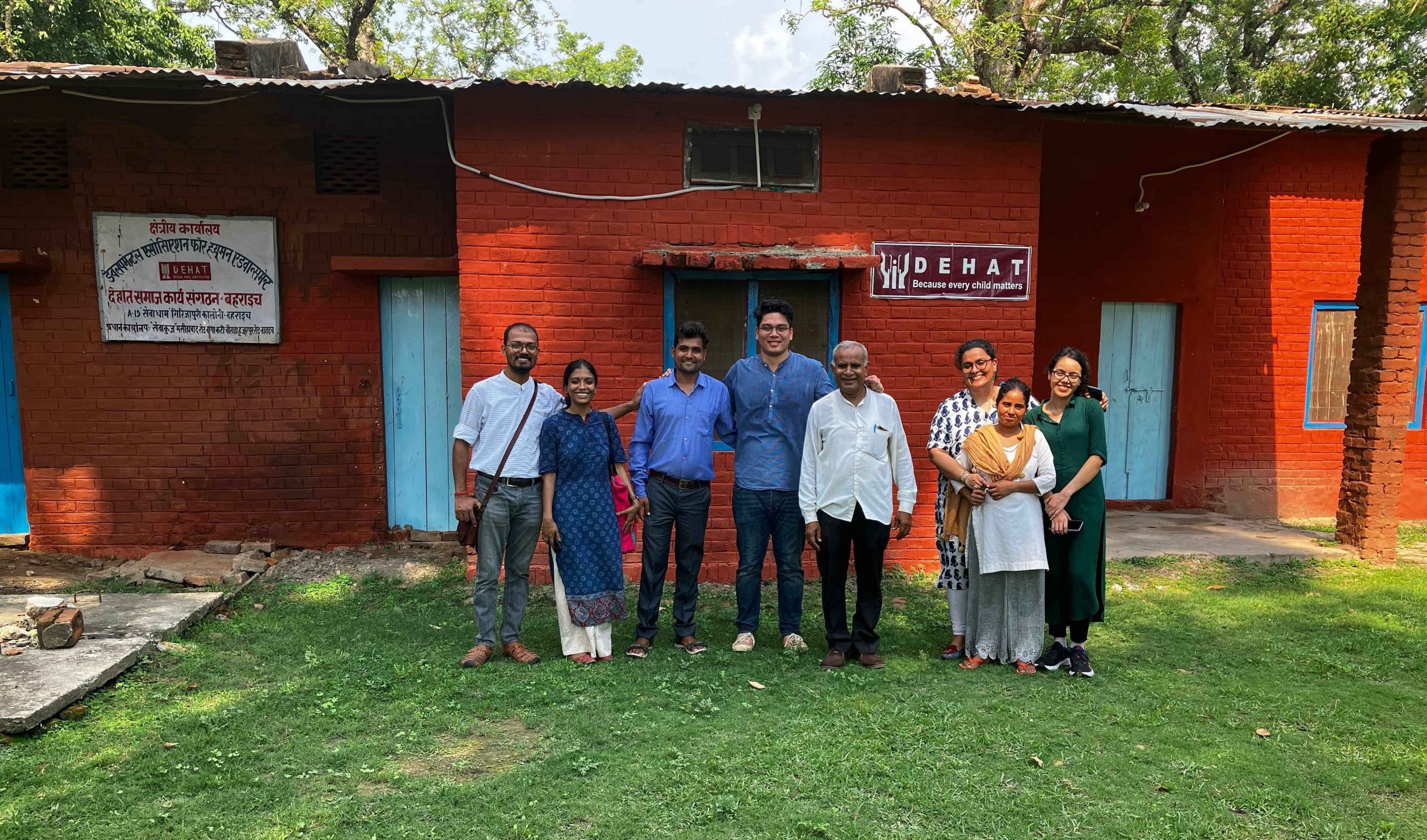We were very fortunate to visit the Martha Farrell Foundation’s (MFF) ‘Swabhiman Kendra’ or ‘Self Respect Centre’ for domestic workers in Gurugram. At the centre, we met some inspiring women who had migrated from Bihar, West Bengal and Uttar Pradesh, relying on domestic work to supplement their family incomes. The centre is located in ‘Harijan Colony’, a slum area located adjacent to some of Gurugram’s most expensive residential societies. We also had the opportunity to meet and interact with adolescent girl champions, some of whom are daughters of domestic workers associated with MFF in Delhi and Gurugram.
How the pandemic emboldened Sarita and her team
While COVID has been hard for all of us, speaking to the centre’s head Sarita, a domestic worker herself, who migrated to Delhi in 2008 from Bihar, we saw an unstoppable force of energy who helped thousands of domestic workers and their families cope with this unfolding disaster. These domestic workers, most who live hand to mouth, had limited access to food and basic necessities and were shut out of the homes that they spent years working in. From looking after their employers’ families better than they look after their own, these hardworking women were treated worse than prisoners, locked into their homes. This did not stop Sunita, in fact, she became even more emboldened to support her sisters in this time of need by creating customized care packages which provided medicines for pregnant women, rice and atta flour for communities depending upon their regional dietary preferences, and hygiene essentials including sanitary napkins. As one girl mentioned in our meeting, COVID did not stop periods.

Mehak explains the problem tree
Infected employers don’t keep their masks on, endangering workers and their families
Sarita and others literally risked their lives during Delhi’s deadly second COVID wave to help communities in their time of need. If it was not for their timely intervention, many more would have died during this time. Over the last 2 years, domestic workers’ incomes have been cut by 20-40%. They are asked to do many more tasks than they were previously paid for and are expected to work even if their employers have COVID. They are constantly putting themselves and their families at risk for wages lower than the set minimum. When one worker asked her infected employer to wear a mask, she was told not to come back. With COVID, household abuse has increased, daughters of domestic workers are forced to leave school and work at home and outside while continuous sexual harassment occurs at building societies, with watchmen and police.
Despite all these hardships, these amazing women spoke about the need to support other migrant domestic workers, and ensure their daughters are given greater opportunities and did not speak about quitting but rather bringing more equity and dignity to the workplace. MFF is working closely with the Delhi government create a new legal structure to provide domestic workers the same protection against sexual harassment at the workplace as all other working men and women across India.
Sharing dreams with ‘KBC champions’ and BTS fans
After meeting the women and hearing their stories of struggle and hope, we spent time with their daughters who are champions of the program for adolescents, ‘Kadam Badhate Chalo’ or ‘Keep Walking Forward’. The girls, with great confidence and enthusiasm, showed us their new Instagram page ‘Chalo_Sawal_Uthaye’ which means ‘come let’s ask questions’. The page features content related to safety, gender norms, menstruation and rights. They walked us through a creatively represented, hand drawn ‘problem tree’ that was prepared using participatory methods to identify, prioritise and highlight critical issues and challenges being faced by them. Along with the problems, the tree also featured possible solutions.
We spoke about gender identity, not being able to wear certain clothes in public, and how the aunties were worse than the uncles at passing rude remarks perpetuating gender norms and discrimination. When we went around asking girls what they wanted to be, one girl said her goal was to move to Mumbai, Dubai, or Korea and work there. We were curious about how Korea made the list and she quickly replied that it was her love for BTS.
Martha Farrell, a women’s rights crusader who worked across India and globally, was killed in a terrorist attack in May 2015 in Kabul, Afghanistan while running a gender training program. The Martha Farrell Foundation was set up in her name to continue her work in supporting women and focusing on the most marginalized of groups including migrant domestic workers. Not only have many of them fled unstable situations from across India to move to Delhi, many did not speak the language, had no family connections or support systems, they are looked down upon by local domestic workers and receive limited support from the police when they file cases of abuse and harassment. Their vulnerabilities are multi-faceted, but together, they feel stronger and able.



